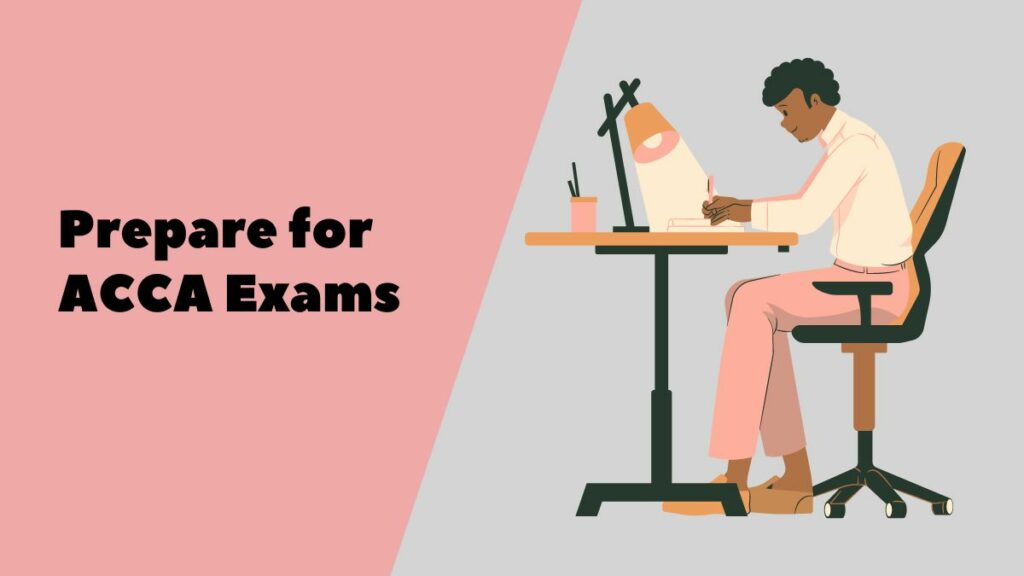How to Prepare for ACCA Exams: Best Practices for Long-Term Success

The Association of Chartered Certified Accountants (ACCA) qualification is one of the most prestigious and recognized certifications in the accounting and finance sector. Earning the ACCA qualification opens doors to numerous career opportunities and helps professionals gain expertise in financial management, auditing, and taxation. However, the path to success in ACCA exams can be challenging, requiring dedicated preparation, strategic planning, and consistent effort. In this article, we will explore best practices for preparing for ACCA exams and offer insights into how to ensure long-term success in the program.
Understand the ACCA Exam Structure
The first step in preparing for the ACCA exams is to fully understand the exam structure. The ACCA qualification consists of three levels:
- Applied Knowledge (AK): The introductory level covering basic accounting and business concepts.
- Applied Skills (AS): The intermediate level, which dives deeper into topics such as taxation, law, and financial management.
- Strategic Professional (SP): The final level, focusing on advanced areas like financial strategy, management, and governance.
Each level requires specific preparation strategies, and it’s essential to understand the syllabus and exam format for each paper you are undertaking.
Tip: Familiarize Yourself with the Exam Pattern
ACCA exams typically consist of multiple-choice questions (MCQs), long-form questions, and case studies. Practice with past papers and sample questions to get a feel for the exam format and time constraints.
Create a Study Plan
A well-organized study plan is one of the most crucial factors in passing the ACCA exams. ACCA exams are comprehensive, and without a structured approach, it’s easy to feel overwhelmed. The study plan should include:
- A Timeline: Set realistic goals for each subject based on the syllabus. Divide your time wisely between subjects, taking into account the complexity and weight of each paper.
- Study Sessions: Break your study time into manageable sessions. Studying in shorter bursts with breaks in between is often more effective than long, uninterrupted study periods.
- Revision Time: Allocate enough time for revision before the exam. The last few weeks should be dedicated to reviewing key concepts, practicing questions, and taking mock exams.
Tip: Track Progress and Stay Flexible
While a study plan helps set expectations, it’s important to adjust it if necessary. Track your progress and be flexible enough to modify your schedule as needed.
Leverage High-Quality Study Materials
ACCA’s official study materials and textbooks provide a comprehensive guide to the syllabus, but you can also benefit from supplementary resources. Many students rely on third-party study providers, such as BPP Learning Media or Kaplan, for additional practice questions, revision kits, and video tutorials.
Additionally, ACCA colleges in Nairobi and across Kenya often offer dedicated courses, workshops, and resources that can help you better understand the material. Participating in these courses ensures that you have access to expert tutors and focused study environments.
Tip: Use a Variety of Resources
Mix and match study materials to gain a well-rounded understanding of each topic. Use textbooks, online videos, podcasts, and group study sessions to reinforce your knowledge.
Stay Consistent with Practice
Consistent practice is vital for mastering the ACCA exams. You can begin by solving questions from your study materials, and then move on to past exam papers to familiarize yourself with the types of questions that typically appear. Time yourself to simulate exam conditions and improve your time management skills.
Tip: Focus on Weak Areas
When practicing, pay particular attention to areas where you struggle the most. Revisiting these topics multiple times can help reinforce your understanding and increase your confidence.
Take Care of Your Well-Being
Preparing for ACCA exams can be stressful, and it’s important to maintain a healthy work-life balance. Stress and burnout can negatively affect your concentration and performance. Be sure to:
- Get Enough Sleep: Sleep is essential for memory retention and cognitive function. Aim for 7-8 hours of sleep each night to stay sharp.
- Eat Well: A balanced diet plays a role in boosting your energy and maintaining focus during long study sessions.
- Exercise: Regular physical activity can improve your mood, reduce stress, and increase your overall productivity.
Tip: Practice Mindfulness
Incorporate relaxation techniques such as deep breathing or meditation to help manage anxiety and maintain a clear mind during study sessions.
Take Mock Exams and Review Your Performance
One of the best ways to gauge your exam readiness is by taking full-length mock exams. These exams simulate real exam conditions and help you assess your knowledge, identify weak areas, and improve your time management skills.
After each mock exam, take time to thoroughly review your answers. Understanding why you made certain mistakes will help you avoid them in the real exam.
Tip: Use Mistakes as Learning Opportunities
Mistakes are part of the learning process. Use them as a chance to reinforce your understanding and avoid making the same errors during the actual exam.
Exam Day Preparation
The final step is preparing for the actual exam day. Make sure you have everything you need, including identification, a calculator, pens, and any other required materials. Arrive early to avoid unnecessary stress and give yourself time to settle in.
Tip: Stay Calm and Confident
It’s normal to feel nervous before the exam, but confidence can make a big difference. Stay calm, trust in your preparation, and approach the exam methodically.
Join Study Groups or Take Advantage of Tutoring
Collaborating with peers can help deepen your understanding of the material. Study groups provide an opportunity to discuss complex topics, solve problems together, and gain new insights. Many ACCA colleges in Kenya offer tutoring sessions or workshops, where you can interact with fellow students and experienced instructors.
If you find a particular subject challenging, seek additional help through tutoring services. Tutors can provide tailored guidance and clarify any doubts you may have.
Tip: Participate in Online Forums and Communities
ACCA has a global network of students and professionals who participate in online forums and study groups. Joining these communities allows you to exchange tips, resources, and study strategies.
Conclusion
Preparing for ACCA exams requires a disciplined, systematic approach. By understanding the exam structure, creating a study plan, practicing consistently, and seeking support when needed, you can enhance your chances of success. Whether you are studying independently or attending one of the ACCA colleges in Nairobi or Kenya, stay focused on your goals, and remember that long-term success in ACCA is built on consistent effort and strategic preparation.



